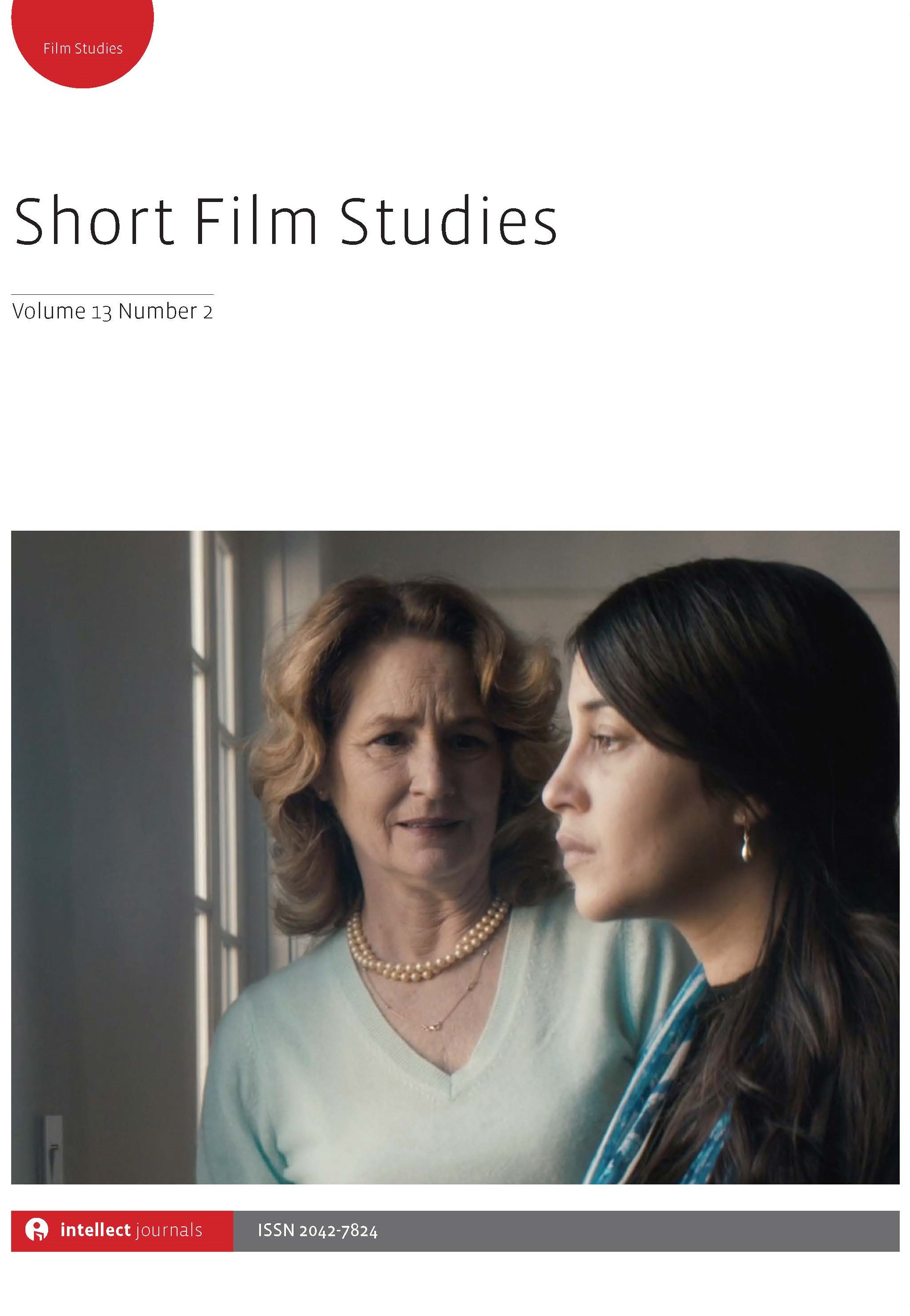- Home
- A-Z Publications
- Short Film Studies
- Previous Issues
- Volume 1, Issue 2, 2011
Short Film Studies - Volume 1, Issue 2, 2011
Volume 1, Issue 2, 2011
-
-
He, she, the camera, the movie: chains of enunciation and spaces of undecidability in Derailment
More LessAbstractThis article will concentrate on the problem of the film's distribution of so-called epistemic competence. It will analyse the film's carefully mounted spaces of undecidability where focalization, authorial/personal narration and (enounced) enunciation as a whole are concerned.
-
-
-
A Swiftian Sunday
More LessAbstractThis essay explores the political and religious conflicts embedded in the film. In particular, I focus on how British, American and Irish Protestant (Swiftian) influences assault the traditional Irish Catholic ethos. I argue that the allusion to Swift suggests that neither modernity nor tradition encapsulates the desired state of being.
-
-
-
Disturbing types: gender stereotypes and the short film
More LessBy Conn HolohanAbstractSunday presents us with a moment of character revelation that undermines the gender stereotypes that have dominated Irish cinema. Its force lies in its refusal to contextualize this revelation through narrative, thereby ensuring that it retains its power to disturb.
-
-
-
Seven words: the real Sunday
More LessBy Emma RadleyAbstractUsing Lacanian psychoanalytic theory, this article examines the gendered dynamics of the various levels of signification in Sunday. It considers the way in which the mother's desire acts as an uncanny disruptive device on traditional structures of meaning and order.
-
-
-
De-familiarization and estrangement in Sunday
More LessAbstractDrawing on the theory of 'de-familiarization', this essay expands on its former applications to literature and the visual arts (specifically cubism) in order to extend it to a reading of John Lawlor's cinematic text, examining how one brief question, 'Mum … Have you ever had an orgasm?' shatters the long-established cliché of the provincial Sunday dinner characterized by vacuity and an absence of action.
-
-
-
Mum, Dad and the Apocalypse: John Lawlor’s Sunday
More LessBy Lesley MarxAbstractThis article explores how Sunday weaves together - through patterns of imagery, sound and silence - forms of catastrophic revelation concerning patriarchal obsession with control that manifests itself through institutional Christianity, enlightenment dreams of cosmic domination or, most shockingly and viscerally, in the private space of the family dining room.
-
-
-
The Sunday religious revival and a horse named Desire
More LessAbstractSunday juxtaposes curiosity, religion and desire amidst the clash of acute sounds vying for attention. These sounds - the banality of knives and forks scraping plates, the instruction of a sermon being delivered via the radio, and a horse's breath and steps - set and break the boundaries between the aforementioned thematics.
-
-
-
Straight lines and circles
More LessAbstractA gendered distinction between straight lines and circles offers a way of approaching the aesthetic choices that underpin Sunday. The situation of the crucial close-up in an alternative temporal and spatial register highlights the film's implicit tension between a 'feminized' space and a 'masculine' regime of narrative law and order.
-
-
-
Tuning in to Sunday
More LessBy Ruth BartonAbstractI explore here the significance of the references to the foreign media in Sunday. My focus is on the sequence featuring the radio broadcast and the references to The Sunday Times and The Sunday Press. How do the father's tastes add to our understanding of his character and motivations?
-
Most Read This Month


